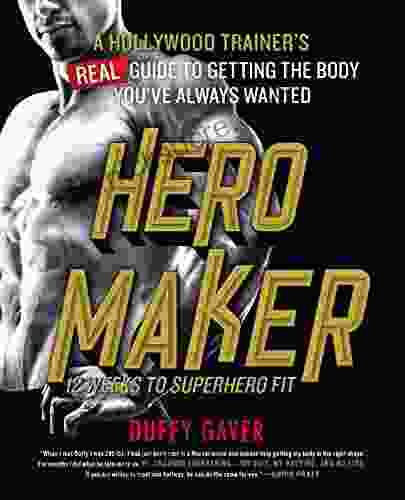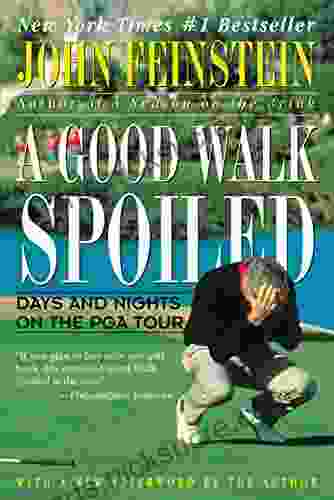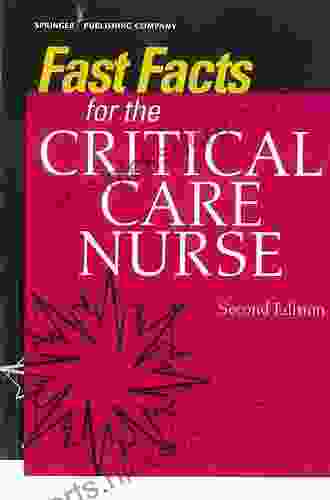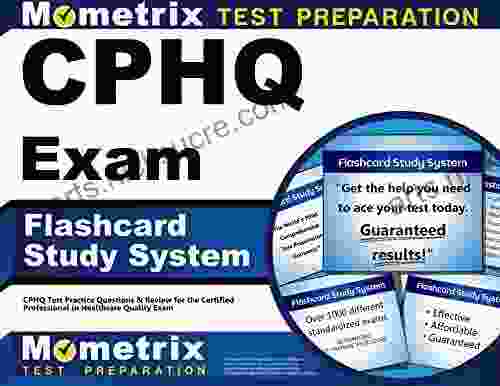Fast Facts For The Critical Care Nurse: A Comprehensive Guide

Critical care nursing is a highly specialized field that requires nurses to possess a deep understanding of complex medical conditions and advanced life support techniques. This article serves as a comprehensive guide for critical care nurses, providing essential information and best practices to ensure optimal patient care in critical care settings.
- Vital Signs Monitoring: Monitor vital signs (heart rate, respiratory rate, blood pressure, temperature, oxygen saturation) every 15-30 minutes or more frequently as needed.
- Neurological Assessment: Perform Glasgow Coma Scale (GCS) assessments regularly and monitor for changes in level of consciousness or neurological function.
- Cardiovascular Monitoring: Monitor heart rhythm using electrocardiogram (ECG) or telemetry. Assess for signs of arrhythmias, myocardial ischemia, or heart failure.
- Respiratory Monitoring: Assess respiratory rate, depth, and effort. Monitor oxygen saturation (SpO2) using pulse oximetry.
- Renal Monitoring: Monitor urine output, creatinine levels, and electrolytes to assess renal function.
- Gastrointestinal Monitoring: Monitor for abdominal distension, nausea, vomiting, or diarrhea. Assess for signs of gastrointestinal bleeding or ileus.
- Ventilator Settings: Adjust ventilator settings (tidal volume, respiratory rate, PEEP, FiO2) based on patient's condition and arterial blood gas analysis.
- Weaning from Ventilator: Gradually wean patients from ventilator support by decreasing ventilator settings over time. Monitor closely for signs of respiratory distress or failure.
- Non-Invasive Ventilation: Consider non-invasive ventilation (e.g., Bilevel Positive Airway Pressure) for patients who require respiratory support but can tolerate spontaneous breathing.
- Hemodynamic Monitoring: Monitor hemodynamic parameters (blood pressure, central venous pressure, pulmonary artery pressure) using invasive or non-invasive methods.
- Vasopressor and Inotrope Therapy: Administer vasopressors or inotropes as ordered to improve blood pressure or cardiac output.
- Fluid Management: Administer fluids cautiously, monitoring fluid balance and electrolyte levels closely.
- Sepsis Management: Recognize and treat sepsis promptly, using early goal-directed therapy and antibiotics.
- Pain Assessment: Use validated pain assessment tools (e.g., Numeric Pain Scale, Visual Analog Scale) to assess patient's pain level.
- Pharmacological Pain Management: Administer opioids, non-opioid analgesics, or local anesthetics as ordered to relieve pain.
- Non-Pharmacological Pain Management: Implement non-pharmacological pain management techniques such as relaxation techniques, cold packs, or position changes.
- High-Alert Medications: Pay special attention to high-alert medications (e.g., opioids, anticoagulants, insulin) and follow institutional protocols to prevent errors.
- Medication Recalculation: Recalculate medication doses and follow double-checking procedures for critical medications.
- Intravenous Medication Administration: Use infusion pumps or intravenous controllers to administer intravenous medications. Monitor patients closely for adverse reactions.
- Standard Precautions: Practice standard precautions for all patients, including hand hygiene, personal protective equipment (PPE),and isolation measures.
- Isolation Measures: Implement isolation precautions as indicated for patients with suspected or confirmed infections.
- Central Line Care: Maintain central venous catheters (CVCs) and other invasive devices meticulously to prevent infections.
- Patient Education: Educate patients and families about their condition, treatments, and expected outcomes.
- Interdisciplinary Communication: Collaborate with physicians, respiratory therapists, pharmacists, and other healthcare professionals to ensure continuity of care.
- Electronic Health Records (EHR): Document patient assessments, interventions, and outcomes accurately and comprehensively in the EHR.
- End-of-Life Care: Provide compassionate end-of-life care, respecting the patient's wishes and addressing ethical concerns.
- Withholding or Withdrawing Treatment: Discuss and support decisions regarding withholding or withdrawing life-sustaining treatment in consultation with the medical team and patient's family.
- Patient Advocacy: Advocate for patients' rights and ensure that their best interests are met.
- Stay Updated: Attend conferences, workshops, and continuing education courses to stay abreast of the latest advances in critical care medicine.
- Certifications and Licensure: Maintain professional certifications (e.g., CCRN, ACCN) to demonstrate competency in critical care nursing.
- Preceptorship: Mentor new critical care nurses to ensure safe and effective patient care practices.
Critical care nursing requires a combination of specialized knowledge, technical skills, and compassionate care. By adhering to the principles outlined in this guide, critical care nurses can provide exceptional care to critically ill patients, ensuring optimal outcomes and improving their quality of life. Continuing education, ethical decision-making, and a commitment to excellence are essential for success in this rewarding field of nursing.
4.6 out of 5
| Language | : | English |
| File size | : | 6054 KB |
| Text-to-Speech | : | Enabled |
| Screen Reader | : | Supported |
| Enhanced typesetting | : | Enabled |
| Print length | : | 190 pages |
4.6 out of 5
| Language | : | English |
| File size | : | 6054 KB |
| Text-to-Speech | : | Enabled |
| Screen Reader | : | Supported |
| Enhanced typesetting | : | Enabled |
| Print length | : | 190 pages |
Do you want to contribute by writing guest posts on this blog?
Please contact us and send us a resume of previous articles that you have written.
 Fiction
Fiction Non Fiction
Non Fiction Romance
Romance Mystery
Mystery Thriller
Thriller SciFi
SciFi Fantasy
Fantasy Horror
Horror Biography
Biography Selfhelp
Selfhelp Business
Business History
History Classics
Classics Poetry
Poetry Childrens
Childrens Young Adult
Young Adult Educational
Educational Cooking
Cooking Travel
Travel Lifestyle
Lifestyle Spirituality
Spirituality Health
Health Fitness
Fitness Technology
Technology Science
Science Arts
Arts Crafts
Crafts DIY
DIY Gardening
Gardening Petcare
Petcare Zachery Knowles
Zachery Knowles John Graves
John Graves V C Andrews
V C Andrews Terrence W Deacon
Terrence W Deacon Jess Thomson
Jess Thomson Marta Szabo
Marta Szabo Shami Stovall
Shami Stovall Adam Shoalts
Adam Shoalts Suzanne Swedo
Suzanne Swedo Adam Schupak
Adam Schupak Deborah Grace White
Deborah Grace White Kieran Higgins
Kieran Higgins Peter Wayne
Peter Wayne Helen Scheuerer
Helen Scheuerer Heather D Yates
Heather D Yates Karl Sigmund
Karl Sigmund Peggy Tharpe
Peggy Tharpe Sam L Savage
Sam L Savage Noah Michaud
Noah Michaud Barry Glassner
Barry Glassner Renato Rosaldo
Renato Rosaldo Zainab Yate
Zainab Yate Elizabeth De Zulueta
Elizabeth De Zulueta Trisha Yearwood
Trisha Yearwood Adrian Lobley
Adrian Lobley Adrienne Mayor
Adrienne Mayor Kevin Biggar
Kevin Biggar Mary Ann Drummond
Mary Ann Drummond Michael H Lubetsky
Michael H Lubetsky Hans Reichenbach
Hans Reichenbach Paul Weamer
Paul Weamer Seymour Lipschutz
Seymour Lipschutz David Churchman
David Churchman Heather Worthington
Heather Worthington James P Lewis
James P Lewis Joanne Jamrosz
Joanne Jamrosz Harry Pearson
Harry Pearson Adrian Li
Adrian Li Jason Browne
Jason Browne Don Nehlen
Don Nehlen Adrian Wallwork
Adrian Wallwork Mark Matlock
Mark Matlock Amy Racina
Amy Racina Greg Guest
Greg Guest Adrian Wells
Adrian Wells Kenneth Martz
Kenneth Martz Timothy D Wilson
Timothy D Wilson Thomas Pranio
Thomas Pranio Ahmed Hulusi
Ahmed Hulusi Amby Cooper
Amby Cooper Jack Heinowitz
Jack Heinowitz Jd Richey
Jd Richey Bonnie Raingruber
Bonnie Raingruber Walter Rhein
Walter Rhein Adele Jones
Adele Jones Balazs Csigi
Balazs Csigi Joseph A Durlak
Joseph A Durlak Claire Heffron
Claire Heffron Eliane Kurbegov
Eliane Kurbegov Mona Liza Santos
Mona Liza Santos Team Golfwell
Team Golfwell Ademar Aguiar
Ademar Aguiar Gary R Miller
Gary R Miller Carl Johan Calleman
Carl Johan Calleman Dirk Baker
Dirk Baker Issendai Bechau
Issendai Bechau Bryan Willis
Bryan Willis Ron Elbe
Ron Elbe Bruce Rosenfeld
Bruce Rosenfeld Leckie
Leckie Letitia Baldrige
Letitia Baldrige Robin L Rielly
Robin L Rielly James Goi Jr
James Goi Jr C K Murray
C K Murray David Sloan Wilson
David Sloan Wilson Elias Johnson
Elias Johnson Kathy A Zahler
Kathy A Zahler Alex Aster
Alex Aster Jorge Luis Delgado
Jorge Luis Delgado Elias M Stein
Elias M Stein Jeff Hutton
Jeff Hutton Ae Marling
Ae Marling Chuck Mckeever
Chuck Mckeever Asrai Devin
Asrai Devin Marta Alexander
Marta Alexander Suzy Giordano
Suzy Giordano Alvin Boyd Kuhn
Alvin Boyd Kuhn Larry Clay
Larry Clay Marie Colvin
Marie Colvin Adam Pertman
Adam Pertman Eric Orton
Eric Orton Amy Blakeslee
Amy Blakeslee Trevor Rowley
Trevor Rowley Frans X Plooij
Frans X Plooij Bruce Hood
Bruce Hood Brian J Lang
Brian J Lang Bob Forsch
Bob Forsch Mel Levine
Mel Levine Ashley Bugge
Ashley Bugge Jenna Parker
Jenna Parker C W Ceram
C W Ceram Katarzyna Wac
Katarzyna Wac Todd Whitaker
Todd Whitaker Stephen Tignor
Stephen Tignor Dagogo Altraide
Dagogo Altraide Adrienne Rawlinson
Adrienne Rawlinson Lindsay Burton
Lindsay Burton Melvin Konner
Melvin Konner Julie Gore
Julie Gore Liao Yiwu
Liao Yiwu Barry Brown
Barry Brown Mayuri Saxena
Mayuri Saxena Jordan Bone
Jordan Bone Mariel Hemingway
Mariel Hemingway Rich Froning
Rich Froning Kathryn Casey
Kathryn Casey Konstantinos Mylonas
Konstantinos Mylonas Michael Kerrisk
Michael Kerrisk Peter L Bernstein
Peter L Bernstein Gary Dean Quesenberry
Gary Dean Quesenberry George Sheehan
George Sheehan Wendy Heard
Wendy Heard Bridget Bishop
Bridget Bishop Agatha Christie
Agatha Christie Mark Cucuzzella
Mark Cucuzzella Ken Jeremiah
Ken Jeremiah Christina Cimorelli
Christina Cimorelli Andres Mooring
Andres Mooring Tessa Bielecki
Tessa Bielecki Nelson L Schuman
Nelson L Schuman Richard J Larsen
Richard J Larsen Craig Wiggers
Craig Wiggers Philip Maffetone
Philip Maffetone Gianni Filippini
Gianni Filippini James Mcdougall
James Mcdougall George Makari
George Makari Jasmine Taylor
Jasmine Taylor Adrian May
Adrian May Julia V Taylor
Julia V Taylor Tommy Caldwell
Tommy Caldwell Debra D Sullivan
Debra D Sullivan Charles D Amico
Charles D Amico Ken Dehart
Ken Dehart Staci Frenes
Staci Frenes Kendare Blake
Kendare Blake Elizabeth Parker
Elizabeth Parker Jose Antonio Fernandez
Jose Antonio Fernandez Greg Wyshynski
Greg Wyshynski Annie Gilbert Coleman
Annie Gilbert Coleman Ahmad Al Sukaini
Ahmad Al Sukaini Andrew Beyer
Andrew Beyer Andrea Ros
Andrea Ros David Graeber
David Graeber Taylor Markarian
Taylor Markarian Doki Cohen
Doki Cohen Barbara Mertz
Barbara Mertz Warwick Rodwell
Warwick Rodwell Robin Jones Gunn
Robin Jones Gunn Sun Yung Shin
Sun Yung Shin Timothy J Baroni
Timothy J Baroni Yusra Mardini
Yusra Mardini Philip Striano
Philip Striano Louisa J Morgan
Louisa J Morgan Jennifer Justus
Jennifer Justus Afrodite Rossini
Afrodite Rossini Nicholas Carr
Nicholas Carr Gerry Giovinco
Gerry Giovinco Nicole Spindler
Nicole Spindler Thomas E Gilson
Thomas E Gilson John North
John North Helen Xander
Helen Xander Rebecca Lowe
Rebecca Lowe Frank C Keil
Frank C Keil Christina Shelley Albrecht
Christina Shelley Albrecht Collins Easy Learning
Collins Easy Learning Robert Stone
Robert Stone Michele Angello
Michele Angello John Hillman
John Hillman Amy Bartelloni
Amy Bartelloni Supana Onikage
Supana Onikage Darrell Huff
Darrell Huff Kirsten Watson
Kirsten Watson D J Conway
D J Conway Seth Berkman
Seth Berkman Alex Tremm
Alex Tremm Jacqueline Winspear
Jacqueline Winspear Slavka Bodic
Slavka Bodic Kamala Harris
Kamala Harris Monique Boutsiv
Monique Boutsiv Gena Showalter
Gena Showalter Mickey Royal
Mickey Royal Akilah Hughes
Akilah Hughes Adam Stevenson
Adam Stevenson Peter Shirley
Peter Shirley Thich Nhat Hanh
Thich Nhat Hanh Lydia Kang
Lydia Kang Jeff Wallach
Jeff Wallach Oscar Ratti
Oscar Ratti Michael J Domitrz
Michael J Domitrz Kim Gosselin
Kim Gosselin Alexi Pappas
Alexi Pappas Jeff Van West
Jeff Van West Dr James Dinicolantonio
Dr James Dinicolantonio Valerie Melvin
Valerie Melvin Gary Lonesborough
Gary Lonesborough Marty Ofonagoro
Marty Ofonagoro P Brian Noble
P Brian Noble Cindy Nana Parente
Cindy Nana Parente Dan Fagin
Dan Fagin Meg Cox
Meg Cox James Lovelock
James Lovelock Peter Marshall
Peter Marshall Joe Posnanski
Joe Posnanski Archie Brain
Archie Brain Heidi Dusek
Heidi Dusek Nicholas Kardaras
Nicholas Kardaras David A Whitsett
David A Whitsett Tina L Quick
Tina L Quick Timothy Gowers
Timothy Gowers Eric Adelson
Eric Adelson Michael Brooks
Michael Brooks Max Mason
Max Mason George A Morgan
George A Morgan Jenny Jones
Jenny Jones Sam Fadala
Sam Fadala Ayelet Fishbach
Ayelet Fishbach Moon Ho Jung
Moon Ho Jung Herbert Clyde Lewis
Herbert Clyde Lewis Karen J Bun
Karen J Bun Frederick J Gravetter
Frederick J Gravetter Myatt Murphy
Myatt Murphy Herbert L Roitblat
Herbert L Roitblat Joanna Warrington
Joanna Warrington Jo Deurbrouck
Jo Deurbrouck S Yates
S Yates Charles Dougherty
Charles Dougherty Jake Schafft
Jake Schafft Adharanand Finn
Adharanand Finn Aenghus Chisholme
Aenghus Chisholme Michael Bronski
Michael Bronski Michael S Weisbach
Michael S Weisbach Carmen Juncal
Carmen Juncal Luca Vargiu
Luca Vargiu Adrienne Young
Adrienne Young Kara Powell
Kara Powell Allie Duzett
Allie Duzett Stephen John Peel
Stephen John Peel Marissa Anderson
Marissa Anderson Khalid Khashoggi
Khalid Khashoggi Saidiya V Hartman
Saidiya V Hartman Doris J Barnes
Doris J Barnes Adele Faber
Adele Faber Adrian Smith
Adrian Smith Mary Roach
Mary Roach Adam Shaw
Adam Shaw Adrian Wilson
Adrian Wilson Leslie T Chang
Leslie T Chang Adams Media
Adams Media Natania Barron
Natania Barron Phil Cousineau
Phil Cousineau Mildred Johnson
Mildred Johnson Rod Heckelman
Rod Heckelman Afsaneh Moradian
Afsaneh Moradian Mihaly Csikszentmihalyi
Mihaly Csikszentmihalyi Alisscia B
Alisscia B Robert C Renneberg
Robert C Renneberg Joe Varady
Joe Varady Adam Woodbeck
Adam Woodbeck Gerry Lopez
Gerry Lopez Adele Westbrook
Adele Westbrook Gina Fava
Gina Fava Allen Hedrick
Allen Hedrick Kirk Deeter
Kirk Deeter John Shelton Reed
John Shelton Reed Susan Garcia
Susan Garcia Adrian Bejan
Adrian Bejan Laura Fuentes
Laura Fuentes Daniel Sobieck
Daniel Sobieck Mark Bittman
Mark Bittman Julie Mohan
Julie Mohan Linus Wilson
Linus Wilson Lucy Wolfe
Lucy Wolfe Joan Naidorf
Joan Naidorf Rick Sapp
Rick Sapp Haym Kruglak
Haym Kruglak Paul Embrechts
Paul Embrechts Alicia Young
Alicia Young Susan Rovezzi Carroll
Susan Rovezzi Carroll James C Dobson
James C Dobson Susy Lee
Susy Lee Aftab Hamid
Aftab Hamid Emily Ross
Emily Ross Philip Gardiner
Philip Gardiner Adriana Rabinovich
Adriana Rabinovich John D Whidden
John D Whidden Fergus Connolly
Fergus Connolly Kosol Ouch
Kosol Ouch Michael D Rich
Michael D Rich Kevin J Cheek
Kevin J Cheek Edgar Giffenig
Edgar Giffenig Yuu Tanaka
Yuu Tanaka Robin Suerig Holleran
Robin Suerig Holleran Rusty Richards
Rusty Richards Afra J Zomorodian
Afra J Zomorodian Nastassja Martin
Nastassja Martin Meghan Mccarthy Mcphaul
Meghan Mccarthy Mcphaul Lori Bregman
Lori Bregman Duffy Gaver
Duffy Gaver Alvin E Roth
Alvin E Roth Joe Harkness
Joe Harkness Eric Hoffer
Eric Hoffer Basil Pickard
Basil Pickard Paul Parker
Paul Parker Isabella Rotman
Isabella Rotman Brad Rock
Brad Rock Susannah Cahalan
Susannah Cahalan Sherrie Nist Olejnik
Sherrie Nist Olejnik Shawn Thornton
Shawn Thornton Ben Marcus
Ben Marcus Veronica Strang
Veronica Strang Alondra Nelson
Alondra Nelson Max Jammer
Max Jammer Richard Ray
Richard Ray Agnes Light
Agnes Light Sylvia Nasar
Sylvia Nasar Adrienne Engleman Pga Fellow Professional
Adrienne Engleman Pga Fellow Professional Mike Jacker
Mike Jacker John Feinstein
John Feinstein Tony Grice
Tony Grice Cameo Renae
Cameo Renae Amelia Simmons
Amelia Simmons Adam Ploszaj
Adam Ploszaj Hannes Wessels
Hannes Wessels Lisa Mosconi
Lisa Mosconi Laura Zinn Fromm
Laura Zinn Fromm Christy Isbell
Christy Isbell Adrienne Tooley
Adrienne Tooley Simon Needham
Simon Needham John Passmore
John Passmore Dwayne Bryant
Dwayne Bryant Danny Wuerffel
Danny Wuerffel Adiba Jaigirdar
Adiba Jaigirdar C S Pacat
C S Pacat Lily Luchesi
Lily Luchesi Ari Marmell
Ari Marmell Normandi Ellis
Normandi Ellis Colin Pask
Colin Pask Shmuel Goldberg
Shmuel Goldberg Max Porter
Max Porter Sarah Stillman
Sarah Stillman Bobbie Ziemer
Bobbie Ziemer Paul L Wachtel
Paul L Wachtel Nancy Mellon
Nancy Mellon Tom Ryan
Tom Ryan Brad Borkan
Brad Borkan Kevin Van Whye
Kevin Van Whye Anita Bean
Anita Bean Amy Kovarick
Amy Kovarick Adrian Gonzales
Adrian Gonzales Dr Paul Lam
Dr Paul Lam Jonathan Kozol
Jonathan Kozol Zoe Clark Coates
Zoe Clark Coates Joseph Bruchac
Joseph Bruchac David Blatner
David Blatner Frank Delaney
Frank Delaney John Muir
John Muir John Martin Taylor
John Martin Taylor M Barlow Pepin
M Barlow Pepin Ilene Skeen
Ilene Skeen Shelley Metten M S Ph D
Shelley Metten M S Ph D Wayne Curtis
Wayne Curtis Alexandra Christo
Alexandra Christo Dennis Cassinelli
Dennis Cassinelli Leigh Bardugo
Leigh Bardugo Cynthia A Robertson
Cynthia A Robertson J Lynn Bailey
J Lynn Bailey David Mcraney
David Mcraney Joshua Baker
Joshua Baker Tim Hodkinson
Tim Hodkinson Nomi Prins
Nomi Prins Darron L Clark
Darron L Clark Gene Hill
Gene Hill Michelle Reid
Michelle Reid Kevin Greene
Kevin Greene Scott O Dell
Scott O Dell Brittany Konsella
Brittany Konsella Boy Scouts Of America
Boy Scouts Of America Adam Rutherford Phd
Adam Rutherford Phd Spike Walker
Spike Walker Fred Luskin
Fred Luskin Mick Dolan
Mick Dolan Tim Wise
Tim Wise John Nero
John Nero William Smith
William Smith Nicole Bailey
Nicole Bailey Adam Weymouth
Adam Weymouth Maurice Isserman
Maurice Isserman Terri Paajanen
Terri Paajanen Martin Dorey
Martin Dorey The Times Mind Games
The Times Mind Games Anita Shreve
Anita Shreve Jane M Healy
Jane M Healy Scott B Williams
Scott B Williams Herb Carnegie
Herb Carnegie Tony Herman
Tony Herman American Alpine Club
American Alpine Club Kate Wickers
Kate Wickers Gregory Curtis
Gregory Curtis Agnieszka Latocha
Agnieszka Latocha Adib Khorram
Adib Khorram Ursula Goodenough
Ursula Goodenough Zhongwen Fu
Zhongwen Fu Andrea Huneeus Vergara
Andrea Huneeus Vergara Michael Mcteigue
Michael Mcteigue Si Robertson
Si Robertson Brian K Jones
Brian K Jones Angel Millar
Angel Millar Pete Jordan
Pete Jordan Heather Lende
Heather Lende Aditya Chatterjee
Aditya Chatterjee Dale F Bloom
Dale F Bloom Pearl S Buck
Pearl S Buck Meganne Forbes
Meganne Forbes Douglas H Macdonald
Douglas H Macdonald Jay Mcgraw
Jay Mcgraw Ken Robinson
Ken Robinson Marc Roche
Marc Roche Marcus Heerdt
Marcus Heerdt Avner Ash
Avner Ash Erin Eileen Leigh
Erin Eileen Leigh Adrian Bardon
Adrian Bardon E Lockhart
E Lockhart Don Webb
Don Webb Natalie Guenther
Natalie Guenther Christopher Pike
Christopher Pike John Vaillant
John Vaillant George Yule
George Yule Charles R Swindoll
Charles R Swindoll Steve Mchugh
Steve Mchugh Kathy Toney
Kathy Toney Stephen Brennan
Stephen Brennan Vedant J Maheshwari
Vedant J Maheshwari Timothy Leffel
Timothy Leffel Libbi Palmer
Libbi Palmer Harper Paris
Harper Paris Rachel Ormston
Rachel Ormston Daniel Kahneman
Daniel Kahneman Johnathon Allen
Johnathon Allen Jacqueline Houtman
Jacqueline Houtman Adam Raider
Adam Raider Adelheid A M Nicol
Adelheid A M Nicol John D Mccann
John D Mccann Noson S Yanofsky
Noson S Yanofsky Melinda Folse
Melinda Folse Jeff Wiltse
Jeff Wiltse Lynne Kelly
Lynne Kelly Susan Adams
Susan Adams Master Sajid Ahmed
Master Sajid Ahmed Elizabeth Carman
Elizabeth Carman Sergei Urban
Sergei Urban Sarah Clarkson
Sarah Clarkson Baby Professor
Baby Professor Melanie Mitchell
Melanie Mitchell Patrick Hutchinson
Patrick Hutchinson Barry Melrose
Barry Melrose Emily Larson
Emily Larson Joseph Pred
Joseph Pred Matt Morton
Matt Morton Lakshya Trivedi
Lakshya Trivedi Karen Weekly
Karen Weekly Carol Grbich
Carol Grbich Ed Hanczaryk
Ed Hanczaryk Timothy Malcolm
Timothy Malcolm James B Marsh
James B Marsh Dorothy Hamill
Dorothy Hamill Loren Cordain
Loren Cordain Malachi Martin
Malachi Martin Robyn Wideman
Robyn Wideman Adam Serwer
Adam Serwer Bettina Elias Siegel
Bettina Elias Siegel Aubre Tompkins Cnm
Aubre Tompkins Cnm Alexandra Horowitz
Alexandra Horowitz
Light bulbAdvertise smarter! Our strategic ad space ensures maximum exposure. Reserve your spot today!

 Aleksandr PushkinLight Tackle Surf Perch Mastery with J.D. Richey: An Exhilarating Adventure
Aleksandr PushkinLight Tackle Surf Perch Mastery with J.D. Richey: An Exhilarating Adventure
 Edmund HayesDragonblood Sagas: An Epic Teen Dragon Fantasy Adventure that Will Keep You...
Edmund HayesDragonblood Sagas: An Epic Teen Dragon Fantasy Adventure that Will Keep You...
 Henry David ThoreauKey Concepts in Crime Fiction: A Comprehensive Guide to Literary Elements
Henry David ThoreauKey Concepts in Crime Fiction: A Comprehensive Guide to Literary Elements Noah BlairFollow ·5.8k
Noah BlairFollow ·5.8k Mike HayesFollow ·10.1k
Mike HayesFollow ·10.1k Colt SimmonsFollow ·8.8k
Colt SimmonsFollow ·8.8k Gil TurnerFollow ·13.3k
Gil TurnerFollow ·13.3k Winston HayesFollow ·8.1k
Winston HayesFollow ·8.1k Julio Ramón RibeyroFollow ·5.9k
Julio Ramón RibeyroFollow ·5.9k Clark CampbellFollow ·9.7k
Clark CampbellFollow ·9.7k Daniel KnightFollow ·10.5k
Daniel KnightFollow ·10.5k
 Cruz Simmons
Cruz SimmonsThe Ultimate Canadian Cookbook: A Culinary Exploration of...
Journey into the heart of Canadian cuisine...

 Grayson Bell
Grayson BellAn Initial Exploration Of The Diminishing Role Of Facts...
When we think of the digital age, we often...

 Jayden Cox
Jayden CoxHollywood Trainer's Real Guide to Getting the Body You've...
Achieving a fit and...

 Octavio Paz
Octavio PazGood Walk Spoiled: An Exploration of the Effects of...
Dogs are often hailed...

 Jerome Powell
Jerome PowellMuhammad Allah Ahmed Hulusi: A Visionary Scholar and...
Muhammad Allah Ahmed Hulusi...
4.6 out of 5
| Language | : | English |
| File size | : | 6054 KB |
| Text-to-Speech | : | Enabled |
| Screen Reader | : | Supported |
| Enhanced typesetting | : | Enabled |
| Print length | : | 190 pages |







